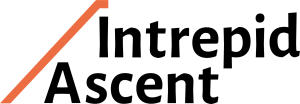“The systemic frustrations are the most exhausting…Today, we ran out of oxygen masks for the patients to use. So much work goes into trying to locate and obtain more. We had a shortage of oxygen tanks, so we connected more than one patient to larger tanks – stuff we normally wouldn’t do. Will we run out of masks entirely? People can give you answers, but they are not witnessing what is happening in front of you. People can tell you it will be O.K., and it is solvable, but this has never happened before.” These are the words of Dr. Hashem Zikry, an intern in the emergency-medicine residency program at Mount Sinai Hospital in New York City currently serving a six-week rotation at Elmhurst Hospital in Queens.[1]
People can tell you it will be O.K., and it is solvable, but this has never happened before. The coronavirus is a black swan, to use the title of the book by Nassim Nicholas Taleb[2] on the dramatic impact of highly improbable events. A sense of uncertainty is pervasive today in the wake of this black swan, as standard models for understanding public health, the economy, and social relations have broken down. In health care, best practices for evidence-based medicine are in flux. To quote Dr. Zikry again, “‘We ourselves are so confused and scared, and every day when we come on shift it seems like there’s a different protocol,’ – the guidance comes from the state Department of Health – ‘for who are we testing, who are we admitting.’”
Leaders in other spheres find themselves in similar circumstances. Prime Minister Mark Rutte of the Netherlands recently noted that leaders today “have to make 100 percent of the decisions with 50 percent of the knowledge, and bear the consequences.”[3] This can be hard for the public to hear at a time when people seek clarity. We want our doctors to calmly make definitive diagnoses, our hospitals to follow proven procedures, and our policy-makers to make decisions based on facts for the collective good. We’re looking for expertise (just look at the widespread popularity of, and sympathy for, Drs. Fauci and Brix), while the experts are saying back to us: we don’t know.[4]
But we are learning fast. The amount of new information being generated and circulated and absorbed today is shockingly high. The ineffectiveness of long-established norms in the face of the coronavirus has unleashed improvisation and innovation, from connecting multiple patients to an oxygen tank to the race for a vaccine to new social practices, and lives are at stake along every link in the chain. As challenging as this has been, it is also freeing, with new questions emerging as we acknowledge the limits of our understanding.
This is how science works, including medicine. Science is humble. A hypothesis or a diagnosis, however well-informed, is not dogma. It must be adapted as new data emerge and as new frameworks for interpretation replace older models. The same is true for any evidence-based protocol or best practice enshrined in policy. These are all artifacts of informed adaptation in an uncertain world.
Some people and organizations and countries will be more effective than others in responding to uncertainty with impactful innovation. Leaders with epistemological modesty, like the Prime Minister of the Netherlands, are best prepared to manage the changes of our time through their responsiveness to new data and ideas. The same is true of clinicians like Dr. Zikry, acutely aware of what they don’t know.
Those of us working in health information technology have a unique obligation to equip these decision-makers with the best information possible. Action cannot wait. We must redouble our efforts to improve data-sharing and analysis to enable the next life-saving clinical decision, the next enlightened policy, and the next brilliant insight that changes everything, again.
[1] Galchen, Rivka, “The Longest Shift,” The New Yorker. April 27, 2020.
[2] Taleb, Nassim Nicholas. The Black Swan. Random House. 2007.
[3] NLTimes, March 12, 2020.
[4] Budasoff, Eliezer, “No Estamos Listos Para El Incertidumbre,” El País, April 25, 2020.
